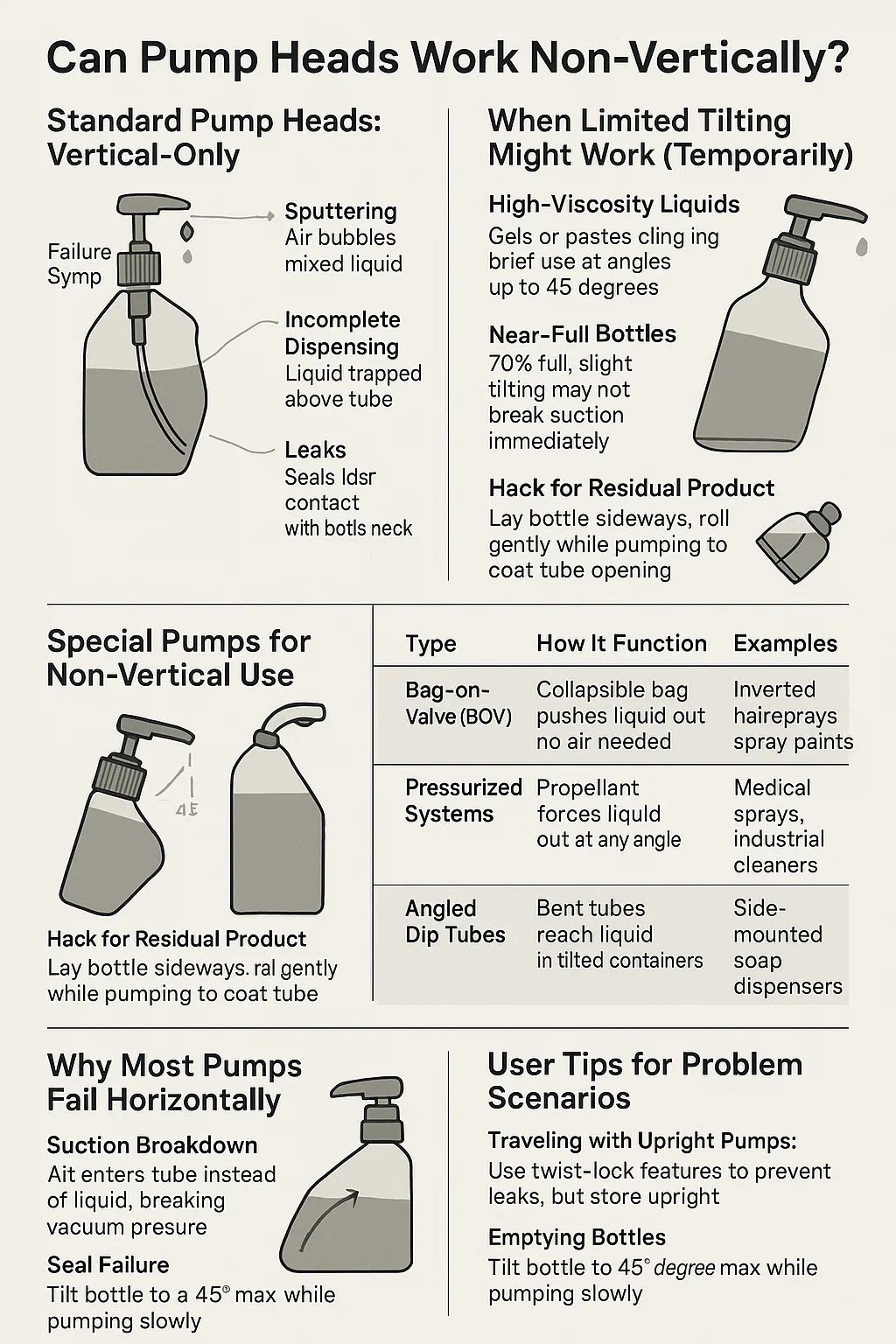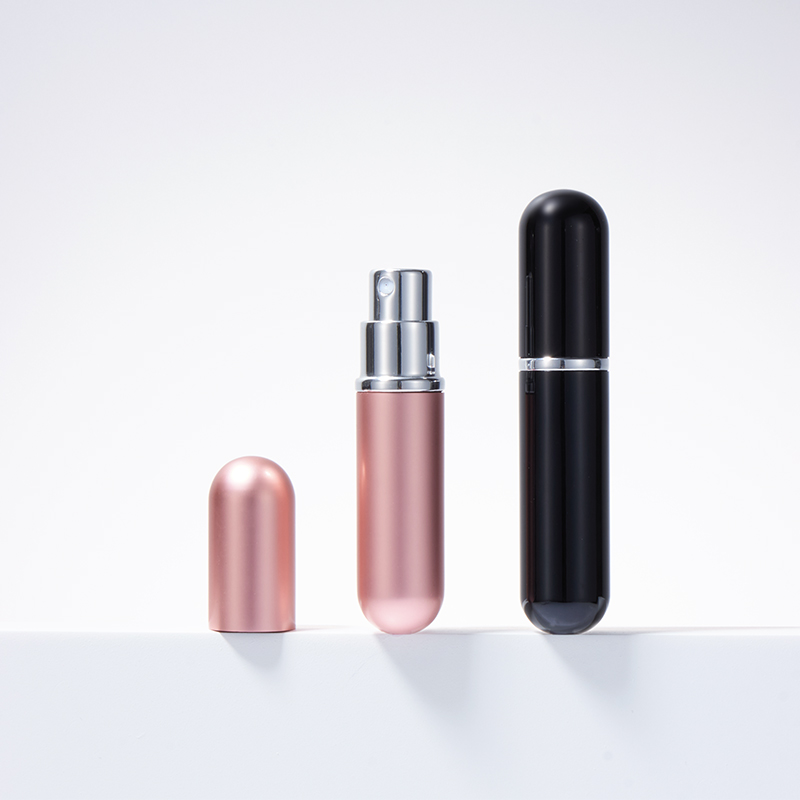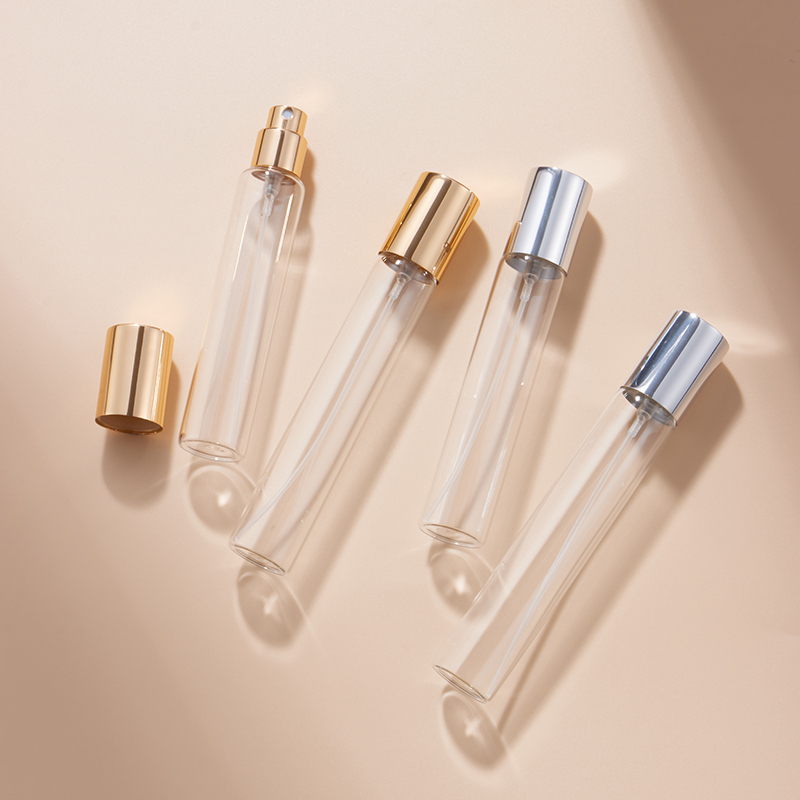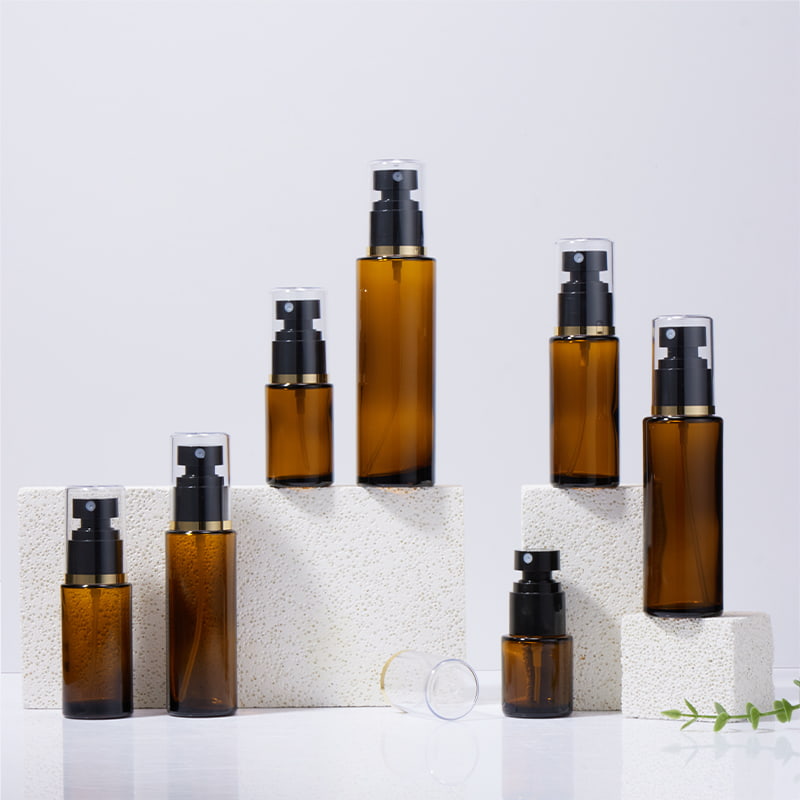Is the pump head only vertical?
Industry News-Can Pump Heads Work Non-Vertically?
1. Standard Pump Heads: Vertical-Only
Gravity-Dependent Design: Dipependent Design: Dip tubes require liquid to pool at the bottle’s bottom. Tilting interrupts suction, causing air intake or dry pumping.
Failure Symptoms When Tilted:
Sputtering: Air bubbles mixed with liquid.
Incomplete Dispensing: Liquid trapped above the tube.
Leaks: Seals lose contact: Seals lose contact with the bottle neck.
2. When Limited Tilting Might Work (Temporarily)
High-Viscosity Liquids: Gels or pastes cling to tubes, allowing brief use at angles up to 45 degrees (e.g., squeezing out the last shampoo).
Near-Full Bottles:
70% full, slight tilting may not break suction immediately.
Hack for Residual Product: Lay bottle sideways, roll gently while pumping to coat the tube opening.
3. Special Pumps for Non-Vertical Use
| Type | How It Functions | Examples |
| Bag-on-Valve (BOV) | Collapsible bag pushes liquid out; no air needed | Inverted hairsprays, spray paints |
| Pressurized Systems | Propellant forces liquid out at any angle | Medical sprays, industrial cleaners |
| Angled Dip Tubes | Bent tubes reach liquid in tilted containers | Side-mounted soap dispensers |
4. Why Most Pumps Fail Horizontally
Suction Breakdown: Air enters the tube instead of liquid, breaking vacuum pressure.
Seal Failure: Pump collars rely on gravity to maintain bottle contact.
Foam/Lotion Pumps: Air-liquid mixing chambers malfunction, dispensing watery sludge.
5. User Tips for Problem Scenarios
Traveling with Upright Pumps: Use twist-lock features to prevent leaks, but store upright.
Emptying Bottles: Tilt bottle to 45 degrees max while pumping slowly.
Avoid: Storing standard pumps sideways – leaks guaranteed.



 中文简体
中文简体 Español
Español عربى
عربى







